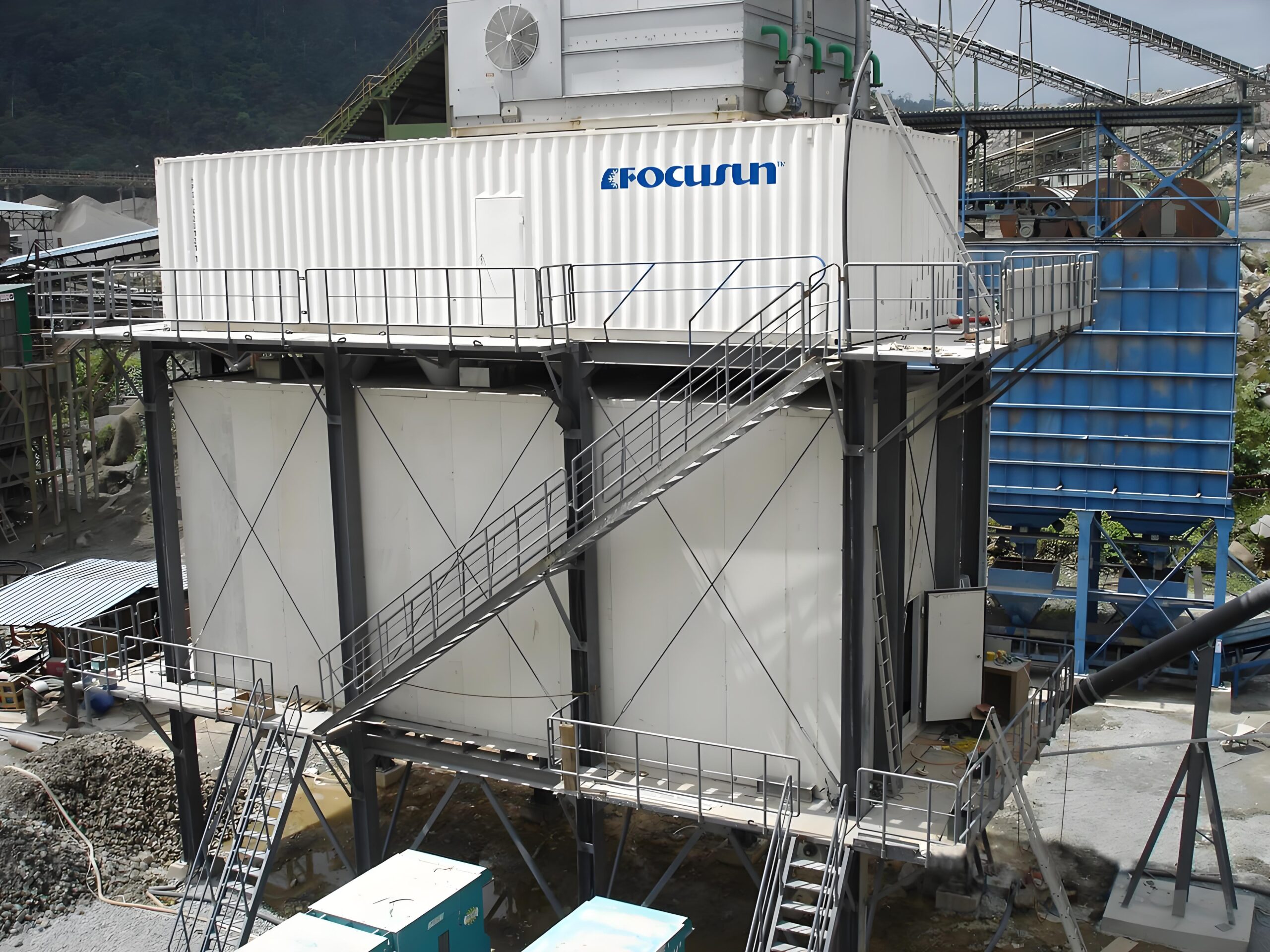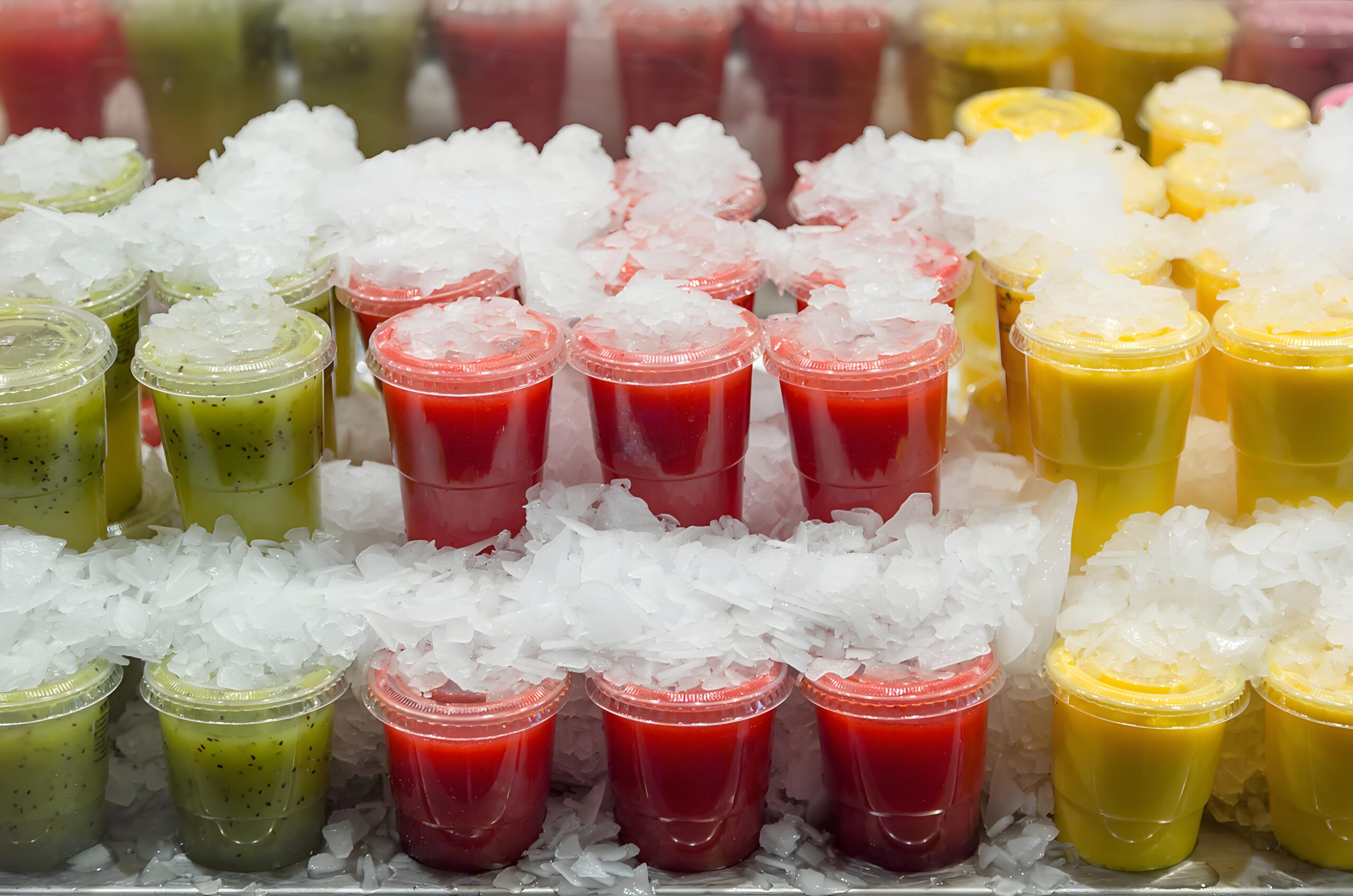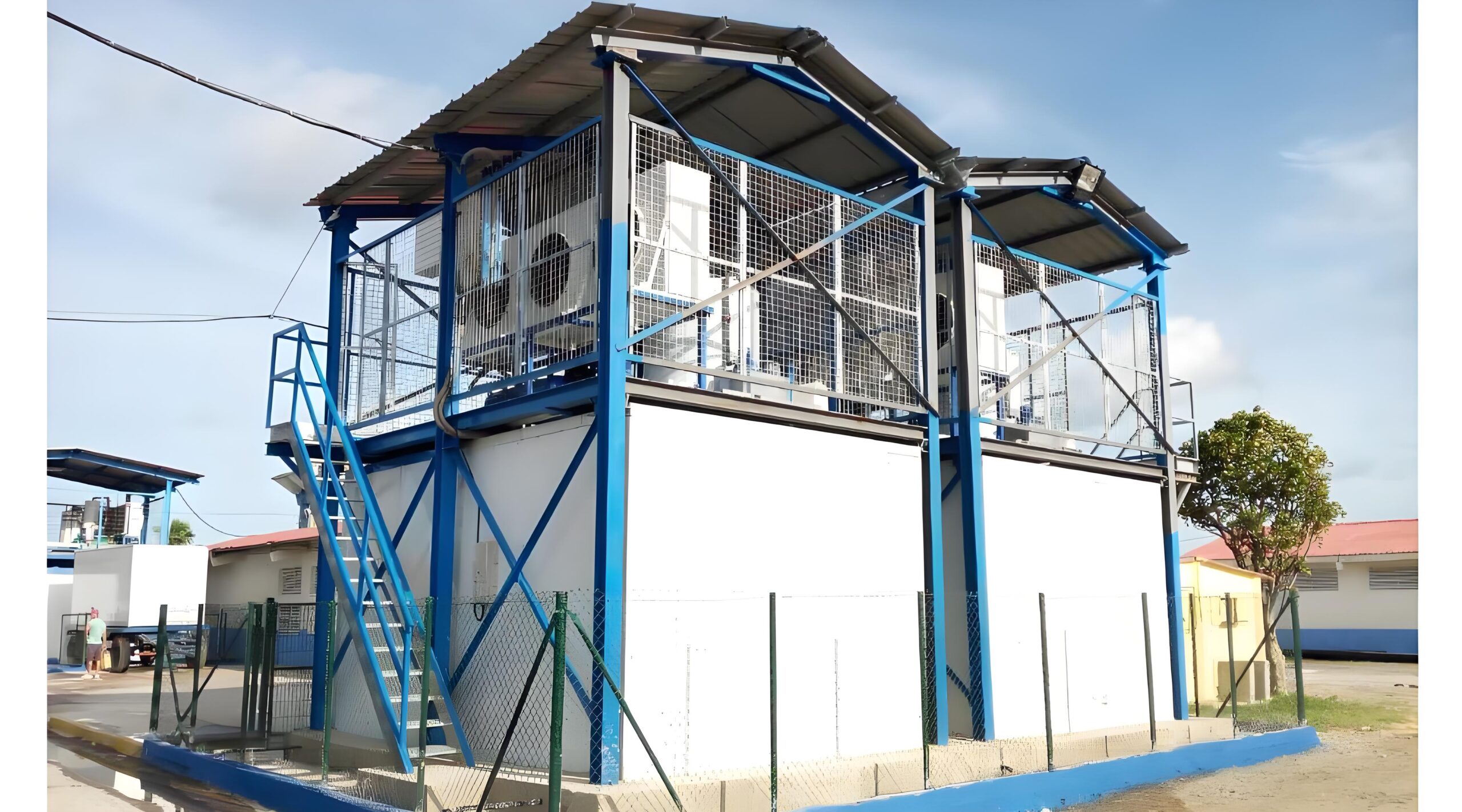17
2025

Core Applications of Flake Ice Machines in the Industrial Field: A Comprehensive Analysis from Food Processing to Concrete Cooling
In the vast ecosystem of industrial production, precise temperature control is often crucial for determining efficiency, cost, and product quality. Among numerous cooling solutions, flake ice machines, with their unique advantages of high efficiency, speed, and ease of conveying and mixing, have become an indispensable “industrial companion” across numerous industries. They go far beyond simply producing ice; they serve as a highly effective heat exchange medium and process solution. This article will delve into the widespread application of flake ice machines in industry and reveal how they have become a hidden champion in modern industrial production.

Why are flake ice machines the preferred solution for industrial cooling?
Before exploring specific applications, we must first understand why flake ice machines stand out. Compared to traditional block ice and granular ice, flake ice produced by industrial flake ice machines offers unparalleled advantages:
Extremely high heat exchange efficiency: Flake ice is only 1.5-2.5 mm thick, presenting a dry, loose, and thin flake shape with a high surface-to-volume ratio. This means it can quickly and evenly exchange heat with the material, instantly removing heat and achieving a cooling rate far exceeding that of other types of ice.
Easy to transport and mix: Dry flake ice has excellent flowability and can be automatically and precisely delivered to mixing tanks, reactors, or materials requiring cooling using screw conveyors or pneumatic conveying systems. It mixes evenly with the material, enabling automated production.
Dry, non-caking: High-quality flake ice has a low moisture content and leaves the factory at temperatures as low as -8°C to -12°C. It resists caking and hardening, making it easy to store and readily available.
Minimal damage to ingredients: Soft flake ice will not puncture or damage delicate ingredients (such as seafood skin and meat tissue) during the mixing process, making it ideal for the food industry.
These characteristics make flake ice machines an ideal choice for industrial applications requiring large-scale, automated, and highly efficient cooling.
Food processing and seafood preservation: Protecting freshness from source to fork.
Ocean fishing and seafood transportation: On fishing vessels, caught seafood is immediately mixed with flake ice for a “layer-on-ice” approach. Flake ice quickly penetrates the gaps between fish, achieving uniform, seamless cooling, instantly locking in freshness and inhibiting bacterial activity, significantly extending the shelf life and quality of seafood. This is the first step in ensuring high-quality seafood arrives at the shore.
Meat and poultry processing: During the slaughtering and cutting process, flake ice is used to cool carcasses and is mixed into meat fillings (such as sausage and ham processing) to control the processing temperature, prevent protein degradation, and ensure food safety and flavor.
Baking and Dairy Products: Flake ice can be added directly as process water in large mixers to precisely control the mixing temperature of dough or cream, ensuring a consistent fermentation process and product quality.
Fruit and Vegetable Pre-Cooling and Distribution: Freshly picked fruits and vegetables are pre-cooled with mixed flake ice before long-distance transportation to quickly remove field heat, reduce respiration, and maintain their crispness and nutritional value.

Chemical and Pharmaceutical Industries: A “Temperature Stabilizer” for Precision Processes
Many chemical synthesis and pharmaceutical reactions are highly exothermic, placing extremely stringent temperature control requirements.
Reactor Cooling: Directly injecting flake ice into the reactor or indirectly cooling it through a jacket allows for precise and stable temperature control, preventing side reactions, inefficiencies, and even safety incidents caused by temperature runaway.
Cooling Water Alternative: In specific processes requiring extremely low-temperature cooling, flake ice provides a cooling medium with a significantly lower temperature than traditional cooling water, eliminating the need for a large refrigeration system and offering greater flexibility and efficiency.
Pharmaceutical Laboratories: Providing a stable and reliable cooling source for experiments and sample storage requiring low-temperature environments.
- Concrete Cooling: Building the “Solid Foundation” of Modern Architecture
In large-scale concrete pouring (such as dams, bridge piers, and large building slabs), the cement hydration reaction generates significant heat, causing the internal temperature to rise dramatically. Excessive temperature differences between the inside and outside of the concrete can cause cracks, seriously impacting the structural safety and lifespan.
Mixing Water Cooling: During the concrete mixing process, replacing part of the mixing water with flake ice is the most effective cooling method. The heat absorbed by melting 1 kg of flake ice (-10°C) is several times the amount of cooling required to cool 1 kg of water from 30°C to 0°C.
Precise Temperature Control: By calculating the amount of flake ice added, the concrete’s exit temperature and mold entry temperature can be precisely controlled, effectively preventing cracks and ensuring the quality of large-scale projects. This is a key technology in the production of high-performance concrete.

How to Choose the Right Flake Ice Machine for Industrial Applications?
Choosing the right industrial flake ice machine is crucial, and the following points should be considered:
Daily Ice Production: Determine the 24-hour ice production capacity based on maximum production demand, and allow for a certain margin.
Flake Ice Temperature and Dryness: Different industries have different requirements for flake ice temperature and dryness, which should be clarified with the supplier.
Material Requirements: The food and pharmaceutical industries must use a main unit and water system made of food-grade stainless steel (such as 304 or 316) to ensure hygiene.
Installation Environment: Consider the water source, power supply (most industrial machines require 380V), site space, and drainage conditions.
Degree of Automation: Is a fully automated ice storage and conveying system required to seamlessly integrate with the production line?
Frequently Asked Questions (FAQs)
Q: What is the difference between industrial and commercial flake ice machines?
A: The main differences lie in continuous ice production capacity, material, and durability. Industrial machines are designed for 24/7 operation, and their core components (such as compressors and pumps) are more durable. They are often made of corrosion-resistant stainless steel, have a higher degree of automation, and can be connected to more complex conveying systems.
Q: Will using a flake ice machine in concrete mixing affect the concrete’s strength?
A: No. The flake ice completely melts into water during the mixing process and becomes part of the mixing water. By precisely calculating the amount of ice added, we only lower the water temperature without changing key parameters like the water-cement ratio. Therefore, this does not affect the concrete’s ultimate strength, but rather improves the quality of the project through effective temperature control.
Q: Can flake ice machines be used in chemical plants? Are there any special equipment requirements?
A: Yes. However, for chemical plants operating in corrosive environments, higher material and protection rating requirements must be met when selecting the machine. For example, key components such as evaporators and water systems may require 316 stainless steel or higher grades of anti-corrosion treatment to ensure long-term, stable operation.
Conclusion
From sea to land, from kitchens to construction sites, flake ice machines are an active part of modern industry. It has evolved from a simple refrigeration device into a critical process equipment that improves product quality, ensures production safety, and achieves energy conservation and consumption reduction. Investing in the right industrial flake ice machine is more than just buying a machine; it injects efficient, reliable cooling power into your production process. In the fiercely competitive market, this precise control of temperature details may be the key to building your core advantage.
Contacts & Support
Focusun Refrigeration CorporationRoom 603, Baohong Center
No. 7755 Zhongchun Rd
Shanghai CHINA
ZipCode: 201100
Tel: +86-21-5108 9946
Fax: +86-21-5227 2259
Email: enquiry@focusun.com
Sales: sales@focusun.com
Marketing: marketing@focusun.com
Press: press@focusun.com
Newsletter: newsletter@focusun.com









